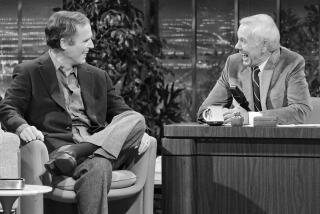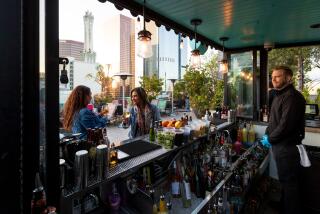Fee Differential for New Burbank Park Questioned
- Share via
BURBANK — Nonresidents are being charged more than residents to use Burbank’s new $1.1-million, state-of-the-art tennis facility at McCambridge Park, complete with clay courts, championship seating for 300, and cafe.
The same is true for swimming, picnicking and team sports programs at the park.
At least, they are now.
Some have complained that Burbank shouldn’t charge nonresidents more, citing the county’s future contribution of $921,000 toward construction of the facility.
County Supervisor Mike Antonovich has asked for a review of the fee differential, in which residents pay $7 per hour compared with $10 for nonresidents during evening use.
Curt Robertson, head of the county’s Regional Park and Open Space District, said his department should have a legal opinion next week.
The new tennis center was part of a general upgrade of McCambridge Park, which cost $4 million, and has been financed entirely with city funds. Burbank has applied for a $921,251 grant from the Los Angeles County Regional Park and Open Space District, the county granting agency that administers Safe Neighborhood Park Act funds. The grant will help defray construction costs.
Accepting grant funds for facilities means that no differential may be charged for users, said Helen Parker, principal deputy county counsel.
The first complaint after the new courts opened Sept. 27 came from Dr. Theresa Karam, an avid tennis player, resident of the city of Los Angeles, and president of the Toluca Terrace Woods Homeowners’ Assn.
But Burbank officials argue that the tennis center may charge unequal fees as long as the county grant for McCambridge Park does not specifically fund the tennis center.
“Our contention is that there’s a million dollars of park still open to anyone,” said Mary J. Alvord, director of Burbank’s Park and Recreation Department.
Differential fees are nothing new in Burbank. Alvord said the city charges them for “literally every service,” and has done so since around 1975. “I don’t think there’s a place where we don’t differentiate,” she said.
Nonresidents must pay more to use the city’s pools and DeBell golf course. City residents may also register earlier than nonresidents for the city’s adult and youth classes. In addition, nonresident adults pay an extra $5 to take classes. If the city receives a nonresident’s registration form early, “we put it on the bottom of the stack,” Alvord said.
Burbank residents deserve priority use of city facilities and favored rates, Alvord said.
“We feel pretty strongly about it,” she said. The fact is [Burbank residents] live here, work here and pay taxes here.”
Burbank is not alone in charging differential fees. In neighboring Glendale, residents pay lower fees for some city services. For example, players with residency cards receive $2 discounts at the city’s golf course. Yet tennis court rates at its Scholl Canyon Golf and Tennis complex are the same for residents and nonresidents. Class prices at its Brand Art Center are also uniform.
Nello Iacono, director of parks in Glendale, said a decision has not yet been made on whether differential fees will be the norm at the proposed $7.7-million Glendale Sports Complex. Groundbreaking began Monday at the complex, for which $2.5 million in funding comes from county sources.
“If we are consistent with our philosophy, we will want to give Glendale residents a preference. It’s their tax dollars involved with the facility,” said Iacono.
The city of Los Angeles does not charge unequal fees, said Jan Zatorski, a senior management analyst with the Los Angeles Department of Recreation and Parks.
Zatorski said that it is also easier for smaller cities like Burbank to differentiate between residents and nonresidents than for Los Angeles, which has a population of over 3 million.
She said different fees would accomplish little except “create divisiveness.”
More to Read
Sign up for Essential California
The most important California stories and recommendations in your inbox every morning.
You may occasionally receive promotional content from the Los Angeles Times.













